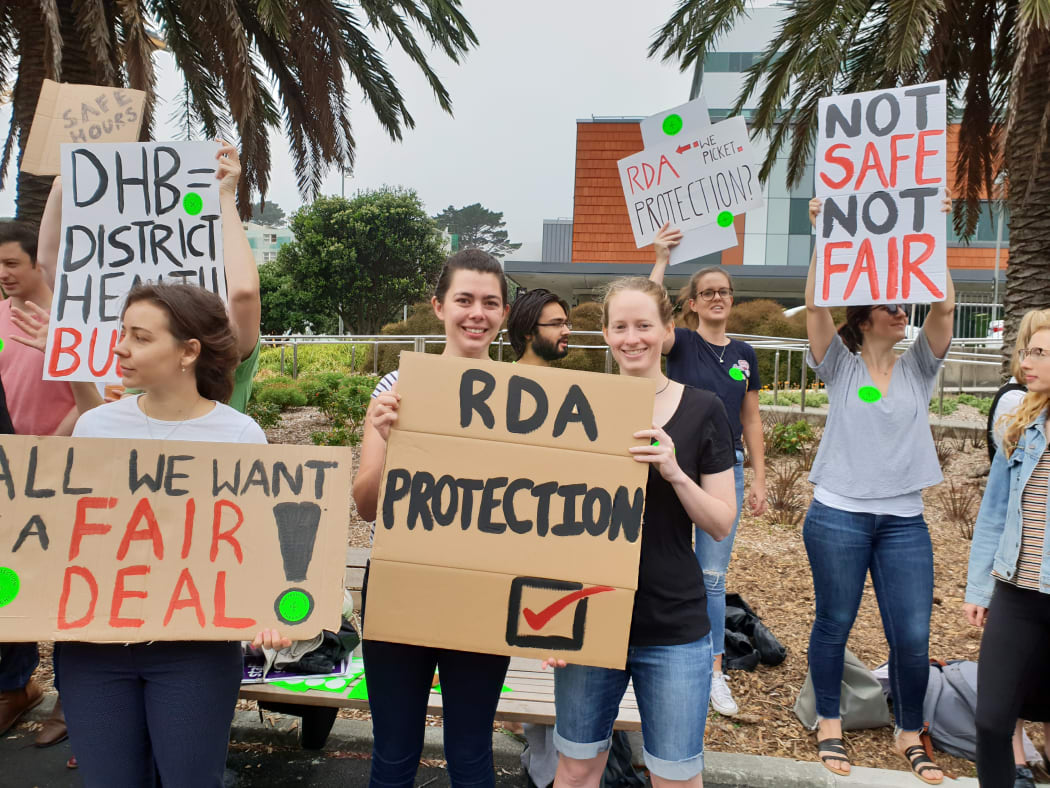Junior doctors at all district health boards except Canterbury will strike for five days from 29 April over an employment row.

Emergency department doctor Tessa Ramsden (right) with Hutt Hospital doctor Hannah Thompson picketing outside Wellington Regional Hospital on 29 January. Photo: RNZ / Karen Brown
The doctors' union and district health boards are at an impasse in their row over the doctors' employment deal which expired late February.
The doctors cancelled a strike planned for 15-18 April over technical problems, before voting on an unpredecented five-day strike starting 29 April. They have held four two-day strikes since mid January.
They will walk off wards everywhere except Canterbury at 8am on Monday 29 April for five days.
At issue is DHB proposals the doctors say would strip the RDA of its power of veto over roster and other employment provisions. DHBs say they want flexibility and local control over rosters, but the union says those are clawbacks it will not agree to.
Union senior advocate David Munro said it was not about pay but about changes the DHBs wanted to make to the now-expired employment agreement.
"The clawbacks that the DHBs have put on the table they are showing no sign at this stage of removing. And that is a simple impact that could see a much swifter move to settlement of this long-running dispute," he said.
Mr Munro said Canterbury had been omitted from the strike because the hospital is still under pressure from the mosque shootings.
The Resident Doctors Association announced the result of their latest strike ballot this afternoon.
DHB spokesperson Peter Bramley told Checkpoint the union's action does not make sense when talks are still under way.
"We're really disappointed as we think this strike action by the RDA is both unnecessary and uncalled for and is going to put significant pressure on acute care provision and certainly, unfortunately, is going to have significant disruption to planned care services."
He said elective surgeries like hip replacements, knee replacements or cataract procedures could be deferred, but clinical teams would be prioritised for cancer treatments and other care that could not be delayed.
He said DHBs made an generous unconditional settlement offer that addressed their concerns of safe care - but his suspicion was the union had not to presented that to all its members.
Dr Bramley said DHB teams across the country had begun contingency planning but he hoped junior doctors would reconsider.
Doctors have also suggested the strike could be averted if the Employment Relations Authority agreed to urgent facilitation and if DHBs decided to compromise.




